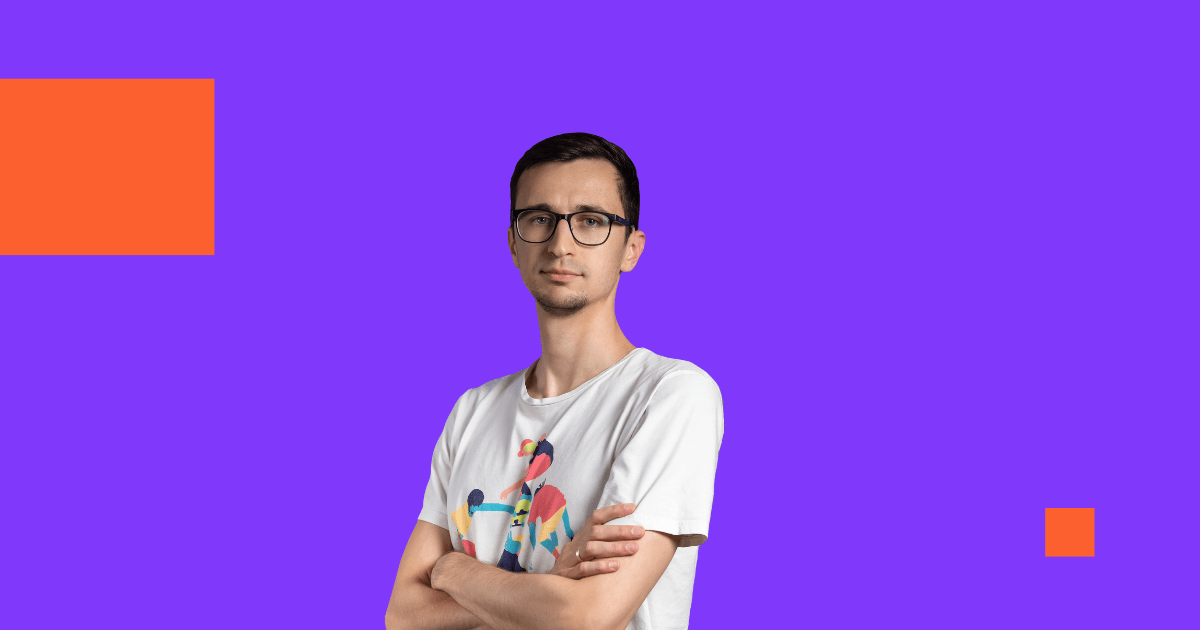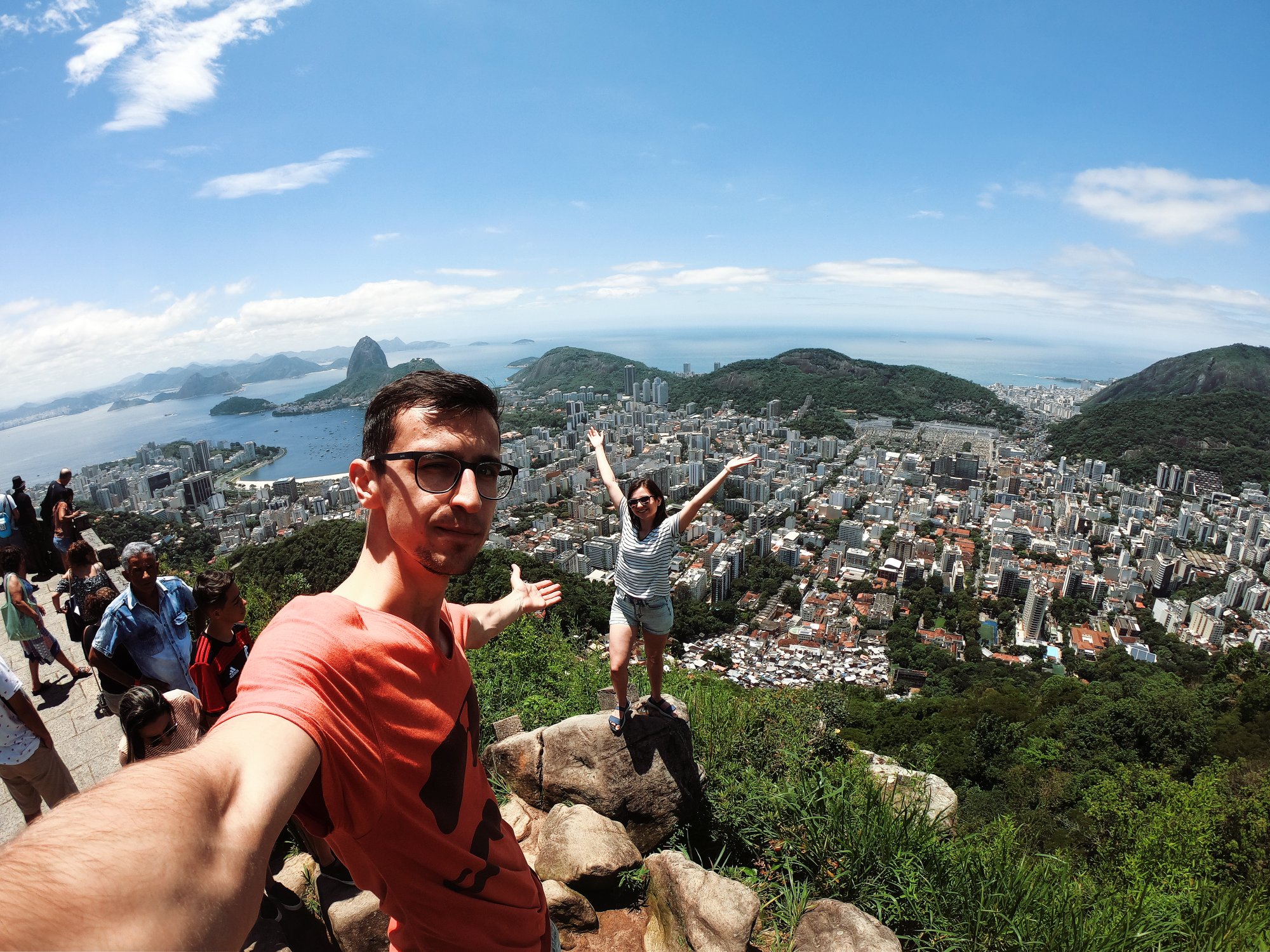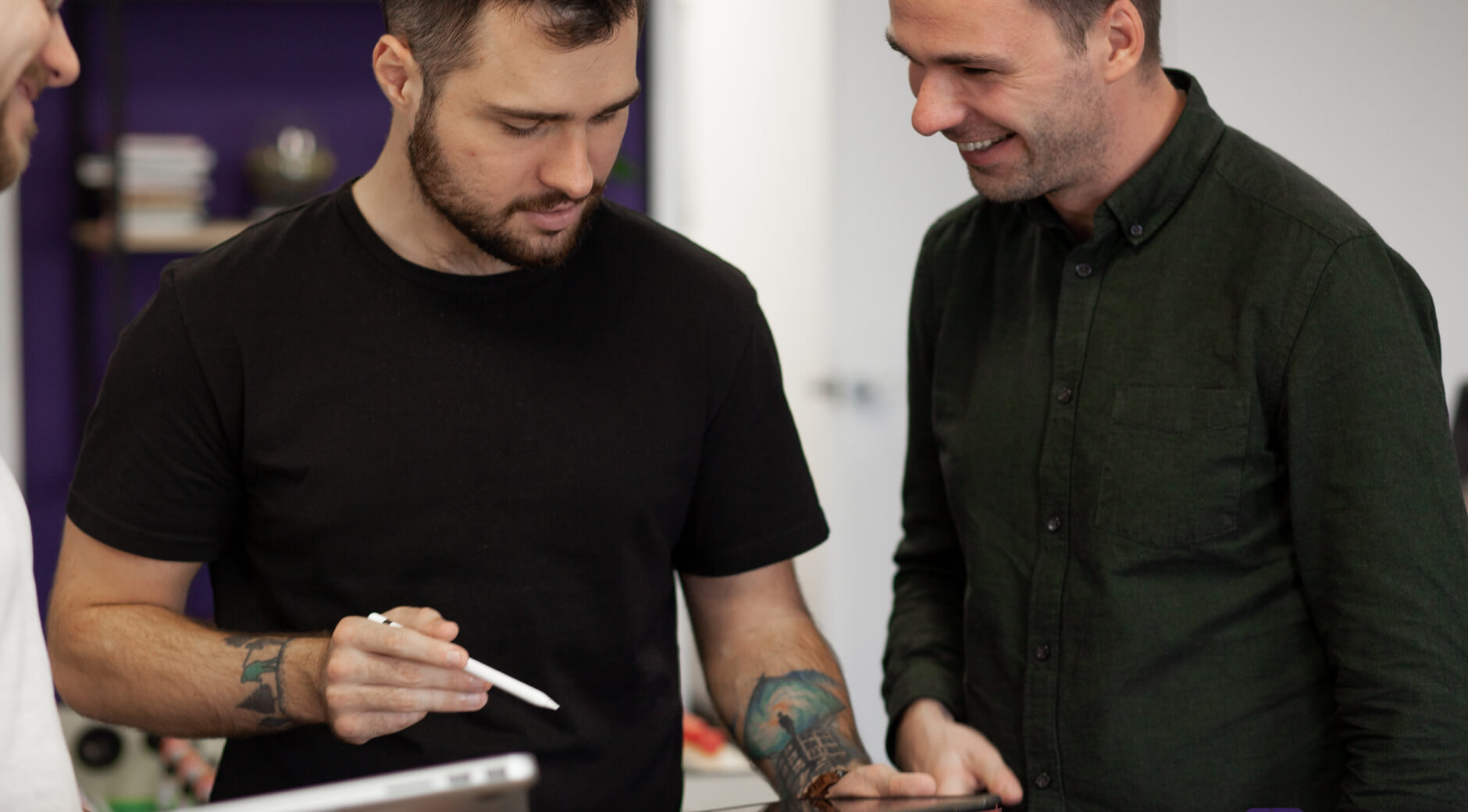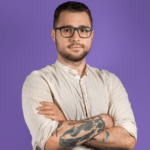От халепа... Ця сторінка ще не має українського перекладу, але ми вже над цим працюємо!

#born_to_be_nerd — Serhii Varanytsia

Anastasia Andon
/
Brand Marketing Manager
7 min read
#born_to_be_nerd is one of our topics where we introduce you to the creators of NERDZ LAB.
Today, you’ll meet Serhii Varanytsia, who is the lead designer at NERDZ LAB.
Article content:
- How did your journey with NERDZ LAB begin?
- What inspires you in your work?
- What advice can you give to aspiring designers who are just starting their careers?
- Why did you choose a career as a designer, and how do you assess its progress in the next 10 years?
- Do you have free time, and is it sufficient for your hobbies? Describe how you spend it.
- What are your favorite movies, music, or books?
- A place on Earth you’ve visited and would recommend to others?
How did your journey with NERDZ LAB begin?
 The story began quite spontaneously. I had burned out at my previous job (though the spontaneity wasn’t related to that 😄), and I was contemplating making some significant changes or taking a “long vacation”.
The story began quite spontaneously. I had burned out at my previous job (though the spontaneity wasn’t related to that 😄), and I was contemplating making some significant changes or taking a “long vacation”.
That’s when Vasyl Khmil (CTO and co-founder of NERDZ LAB) proposed joining a mental health project. I thought it was the perfect match, given how I was feeling. I already knew Vasyl, and we had previously worked on a project together, so I had a general idea of his approach to work and the projects at NERDZ. Similarly, Vasyl was familiar with how I worked. So, I agreed to get involved. We met and discussed the vision for creating and developing the design department, which didn’t exist back then. Overall, I had no doubts about our collaboration, which is quite rare for me.
You may find it interesting to read about the healthcare app – Ayadi
⬇️ Since the development team was already awaiting designs, there was no time for a full vacation after serving out my notice period at my previous job. Instead, I combined a week off with part-time work. So, for my initial working days at NERDZ, I was spending half the time on the beach and half the time on my balcony, working with the beach as a backdrop. It worked out wonderfully!

What inspires you in your work?
Inspiration often depends on the specific tasks I am working on or the project I am involved in.
In terms of the design aspect, I find inspiration when receiving feedback from users and realizing that I’ve proposed a successful solution—that it has effectively addressed a problem. This was also one of my reasons for joining NERDZ.
The therapy-related project, already up and running with a solid user base, offered plenty of chances for testing, interviews, and trying out new ideas. It’s truly motivating to know that my work makes a difference and meets people’s needs, rather than just sitting on a shelf, never to see the light of day.
On a more general level, I’m inspired when I manage to simplify or optimize something. This could be a process or a solution (or an improvement to a solution) for a particular problem, even if it’s not directly related to my current project.
You may find it interesting to read about the healthcare app – TruConnect
What advice can you give to aspiring designers who are just starting their careers?
Start by asking, “Why do I want to become a designer?” If your answer is solely “There’s money in IT” and “I can’t handle being a developer,” you may have taken a wrong turn somewhere, and this might not be the right path for you. If these are your motivations for becoming a designer, you’ll either struggle to last long or have the money you were looking for but lack fulfillment.
If you genuinely want to be a designer, here’s my advice:
- Subscribe to Projector’s library (for Ukrainian-speaking aspiring designers) and watch the 10-15 videos specifically for beginners. This will help you understand if you find the field genuinely exciting and if you grasp what’s happening on the screen.
- Explore the official Figma channel and watch some tutorials. Open Figma and try clicking around, perhaps even redesigning a screen. Essentially, check if you find it captivating, as you’ll likely spend many hours in Figma.
- Check out my collection of resources for beginners.
- If the above steps don’t diminish your interest, consider enrolling in Projector’s beginner course. Assess the duration and type of course based on your financial and time resources. Before registering, verify the instructors—perhaps someone you know works in the same company. Look at their LinkedIn profiles or see if they have a lecture in the Projector subscription (point #1) to evaluate how effectively they convey information.
- After completing the courses or even during them, aim for an internship as a trainee in a company. Be cautious not to set unrealistically high financial expectations. Ideally, join a company with a design team or at least try to find a mentor there. Otherwise, your development might stagnate or worsen.
- Once you’ve passed the trainee or junior stage, you must sync up with more experienced designers in your company or beyond. Don’t hesitate to ask for reviews of your designs, both in terms of UI/UX and Figma file organization. As you progress to mid and senior levels, communication remains vital. Still, by then, you’ll clearly understand your desired direction and no longer solely rely on guidance from senior colleagues.

Why did you choose a career as a designer, and how do you assess its progress in the next 10 years?
I’ve always had a penchant for creative pursuits, from attending art school to a childhood passion for photography and playing acoustic/electric guitars around the clock. However, I also had a reasonably strong aptitude for numbers (thanks to a physics and mathematics-oriented high school), and for a long time, I thought I would become a programmer, which was probably influenced by computer games.
Despite earning a master’s degree in Software Engineering, I realized during my studies that coding wasn’t my calling. I needed something visual, where I could create something tangible. So, I began my journey as a UI/UX designer.
It’s challenging to predict the progress over the next 10 years, but if we look ahead, the field will likely undergo significant transformations, with new branches emerging in the design profession. For example, will physical computers still be prevalent, or will we all exist in a virtual world?
However, focusing on a 5-year timeline, things seem pretty apparent. Those who don’t want to lament that “AI took away my job” must adapt and leverage new AI (and not only AI) tools to enhance the value of their work. Currently, a substantial portion of tasks can be accomplished faster than before without compromising quality. Consequently, the time saved can be allocated to other project aspects, contributing to an overall improvement.
 Istanbul Cats during the time of the coronavirus.
Istanbul Cats during the time of the coronavirus.
Do you have free time, and is it sufficient for your hobbies? Describe how you spend it.
Before the war, my primary hobby and source of joy was taking trips abroad (anywhere, as long as it offered something new to see). Unfortunately, this pleasure is now inaccessible. So, I spend my free time doing things like sports, taking cold baths, enjoying sauna sessions, and using my acupressure mat (which involves lying or standing on needles). They all help me take a mental break from the routine of ‘war-work-home.’ To a lesser extent, playing on the PlayStation helps, although I get quite frustrated when I lose.

What are your favorite movies, music, or books?
Music is everything to me! If I’m not mistaken, Spotify calculated that I spend 80 days listening to music in a year. Currently, my favorites include Run the Jewels, but according to Spotify statistics, I tend to get obsessed with specific bands for a month, and then the genre changes.
Movies and TV shows are also up there for me. Or, more precisely, TV series are my thing. Succession (gets better with each season), Billions (first 2-3 seasons are incredible, don’t bother with the rest), House of Cards (seasons 1, 2, 4, and 5 are masterpieces, avoid season 3, and never watch season 6). There’s so much more; it deserves a separate article.
Books aren’t everything to me, but… In my childhood, I loved everything related to Ancient Greek myths, Harry Potter, and The Lord of the Rings. Later, along the same lines but with a brutally straightforward style, books by Wilbur Smith (he, incredibly, details every ruthless aspect of Ancient Egypt).
Right now, I’m most interested in stories based on real events, with a few exceptions.
Here are some recommendations:
- Creativity, Inc.
- Shoe Dog
- Steve Jobs
- Thinking, Fast and Slow
- Sapiens
- Will
- Delivering Happiness
- Shantaram
- Greenlights
⬇️ My wife and I have a tradition of bringing back a “native” Harry Potter souvenir from the countries we visit together. Here are some examples from a few of our trips.
A place on Earth you’ve visited and would recommend to others?
I hesitate to give recommendations, but I’ll describe what was special for me:
- Offbeat Sweden: During my student years, I was fortunate to spend two weeks in Växjö as part of an educational program. The lifestyle, daily life, architecture, and the incredible openness of the locals left a lasting impression. Many things were significantly different from what I was accustomed to in Ukraine.
- Rio de Janeiro: Most of our group didn’t enjoy the trip due to three weeks of almost non-stop tropical rain, but it was divine for me. It was a childhood dream based on what I had seen in pictures and those unreal views … even the bad weather couldn’t spoil the experience.
- Rome: We’ve been to Italy several times, and just as I don’t like Venice, I adore Rome. It was our honeymoon, and we stayed near the Vatican. On that occasion, we only visited certain attractions, intentionally leaving the other half for our next visit to Rome, as we are sure to return.
- Athens: While acquaintances advised us to travel anywhere but stay away from Athens, we spent a week there, and it was something special. Perhaps it felt that way because everything aligned perfectly, and we truly relaxed despite walking thousands of steps daily. It was a fantastic combination of relaxation, new emotions, and memories.




